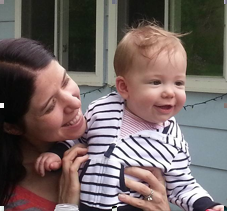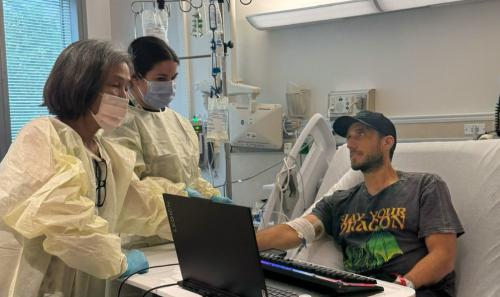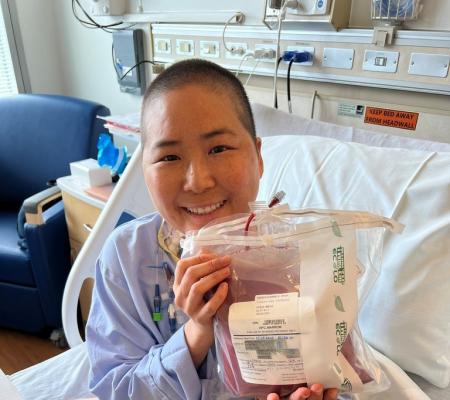
-
Understanding primary immunodeficiency (PI)

Understanding PI
The more you understand about primary immunodeficiency (PI), the better you can live with the disease or support others in your life with PI. Learn more about PI, including the various diagnoses and treatment options.
-
Living with PI
-
Addressing mental health
-
Explaining your diagnosis
- General care
- Get support
- For parents and guardians
-
Managing workplace issues
- Navigating insurance
-
Traveling safely

Living with PI
Living with primary immunodeficiency (PI) can be challenging, but you’re not alone—many people with PI lead full and active lives. With the right support and resources, you can, too.
-
Addressing mental health
-
Get involved

Get involved
Be a hero for those with PI. Change lives by promoting primary immunodeficiency (PI) awareness and taking action in your community through advocacy, donating, volunteering, or fundraising.
-
Advancing research and clinical care
-
Research Grant Program
-
Consulting immunologist
-
Diagnosing PI
-
Getting prior authorization
-
Clinician education
-
Survey research
-
Participating in clinical trials

Advancing research and clinical care
Whether you’re a clinician, researcher, or an individual with primary immunodeficiency (PI), IDF has resources to help you advance the field. Get details on surveys, grants, and clinical trials.
-
Research Grant Program

Justine Uran, 31, of Minneapolis, has a unique story in the chronic granulomatous disease (CGD) community. Justine is a CGD carrier, patient with CGD, and the mother of an infant son who also has CGD.
Although CGD is more common in males, female carriers can also suffer from CGD symptoms if they have a low percentage of functioning neutrophils, which is also referred to as “the lionization ratio.” For female CGD carriers who are “highly lionized,” the road to diagnosis can be even more difficult, as they may appear healthy for many years until a major infection strikes.
Justine describes her childhood as normal until she reached 10 years old. Then, one day, the lymph nodes in her neck became severely infected, and her world changed.
“From that time on, I was in and out of the hospital constantly to have surgery after surgery on my neck to remove infections that kept coming back,” said Justine. “The doctors gave every test they could think of, and they could not figure out what was wrong with me. I had to miss a lot of school, and it was a very difficult time for our family because we didn’t know what was going on.”
Finally, her parents consulted an immunologist who ran an NBT (nitroblue tetrazolium) test. The results showed she only had 30 percent positive or “normal functioning” neutrophils; she was finally diagnosed with a mild form of CGD at the age of 12.
Her doctors prescribed interferon gamma, and her life became normal once more, she said. She still had infections, but she was never hospitalized again. She was able to attend school like everyone else, and she even played on her high school and college basketball teams. Sports, she said, were the key to her sense of well-being.
“I had this feeling of not fitting in – either in the adult world of doctors or the kid world at school,” said Justine. “But basketball gave me something positive to focus on, and I was good at it.”
Justine graduated from college and then went on to obtain her master’s degree; today she works full-time as a mental health therapist.
When she turned 28 and met Dustin, her future husband, everything just “clicked,” she said. They soon got married and began to talk about having children.
“Our first step was to talk to a reproductive health specialist regarding the risk of passing CGD on,” said Justine. “Dustin was completely supportive. He said, ‘Whatever you find out, I’m not going anywhere; we’re in this together.’”
Since Justine is a carrier of CGD, they learned that she had a 50% chance of having a son with CGD and a 50% chance of having a carrier daughter. After considering their options, they decided to have a traditional pregnancy.
“Our faith and spirituality are important to us,” she said. “We had the mindset that we’re meant to have the baby that’s given to us.”
On September 5, 2014, Thor was born, and, as fate would have it, he was diagnosed with CGD. After they absorbed the news, Justine and Dustin knew what to do. We immediately put him on sulfamethoxazole/trimethoprim, itraconazole, and interferon gamma, she said.
“So far, he has been the healthiest and happiest baby,” said Justine. “He doesn’t cry when we give him his ACTIMMUNE shots, and he doesn’t seem to have any side effects.”
Justine says that she is hopeful about the future. “We know that there will be difficult times,” said Justine. “But I am a positive person, and my husband is too. We just don’t dwell on the negative. We’re a team.”
Thank you Justine, Dustin, and Thor for sharing your story!
Related resources

Man with X-linked hyper IgM first-ever to receive novel gene therapy

Pharmacist with CVID receives bone marrow transplant

Undiagnosed: Reuben & Sherri Johnson on CGD, chronic illness, and the fight for healthcare
Sign up for updates from IDF
Receive news and helpful resources to your cell phone or inbox. You can change or cancel your subscription at any time.





The Immune Deficiency Foundation improves the diagnosis, treatment, and quality of life for every person affected by primary immunodeficiency.
We foster a community that is connected, engaged, and empowered through advocacy, education, and research.
Combined Charity Campaign | CFC# 66309

